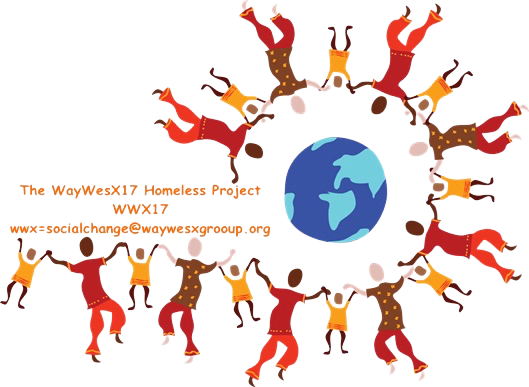
Let's Continue Our Talk

Let’s Continue Our Talk About How Grief & Loss Has Changed the Face of Homelessness…
Today the face of homelessness is more than the unemployed, illiterate, divorced, victims of violence, substance abusers, mentally ill, those aging out of foster care, and those revealing a sexual orientation of LGBTQIA. Research has identified that many young adults are homeless because of revealing to family members that they are lesbian or gay. Interaction with interview participants revealed that the homeless population has changed; therefore, services and support systems must change to support these unique needs. One research participant stated, P16 stated,
I see more and more people that have careers stable careers. Stable jobs, sleeping in cars because usually it would just be, I think back then; it was more people that were addicted to drugs or mental health issues and never had medications. But now, I’m seeing people that look like professionals that have lost their jobs and their home.
Grief and Loss
The following statements consist of verbatim responses that provide rationales of chronic homelessness and its correlation to grief and loss from a paraprofessional perspective. This viewpoint is critical for preparing social systems in supporting the homeless. According to research participant 13, “Grief and loss are still in the file cabinet, while homeless, or recently homeless, they are still having to deal with current issues.” In addition to grief and loss due to the current situation, there is grief over lost opportunities. Research participant 50 described,
I’ve seen some occasions where the homeless say that they don’t want to be a burden to their child, so they would rather live on the street. I’ve heard people say that they are supposed to be taking care of their child, not them, and their situation.
Research participant 17 discussed grief and loss from an African American religious paraprofessional perspective,
In the African American community, when people have mental health issues, they want to pray everything away. We can’t pray everything away. Therapy works, you know, and sometimes, in the case of homelessness, there are people out there that need support. Everybody needs help.
Grief and loss related to chronic homelessness was described by research participant 15,
I think it’s a combination of reasons; seriously, the first thing we address is homelessness. But, I’ve seen people who have become homeless state, ‘I’m still sad but, I’m happy that I have a roof over my head.’ And with this statement we are able to explore more into what makes them sad.
To restore the assumptive world, significant losses must be addressed. Research participant 4 explained that the grief that they’re experiencing is because they are just focused on “How am I getting through this next moment? I need to move forward. I think a lot of people hide grief in work and other activities. Grief is in the cabinet right now.” The homeless population is removed from society with overwhelming personal infrastructures. This daily survivor mentality creates disinterest and the inability to participate in mainstream society. The face of the homeless is changing because of losing a sense of security, stability, and possible loss of identity.
The Many Facets of Grieving
We have been socialized to believe that the world is good and bad things do not happen to good people (Schwartzberg, 2014). When the assumptive world is shaken by a life-altering event and not addressed, the excessive loss can often be bundled together. The assumptive world is under-determined and presumed safe and secure. This may result in the inability to cope. Research participant 1 shared, “well, with homelessness, it’s like you’ve lost all your people, or your places and things at that point. And so, I think, there’s a lot of grief and a lot of loss that goes along with that.” Grief and loss are commonly encompassed and characterized by varied expressions, characteristics, and components.
Progressing through the stages of grief and loss is not orderly, and there is no set period for each stage. The aspects of individual journeys are distinctive. Research participant 48 observed that the homeless lack the “skills of Maslow’s hierarchy, [have] not been given information. The homeless dynamics [are] being overwhelmed by coping and managing all of the realities.” The grief and loss of security, stability, and possible loss of identity were multifaceted, and a paraprofessional’s perspective is critical for rectification. According to research participant 27,
Yes, it shows [grief and loss] a lot when working with individuals or families facing homelessness. The grief is not only the loss of the material and security resources, but those relationships, and so there is a lot of grieving that a lot of families have or do face because of those significant losses. And they are impacting them to the point where they end up with so much despair, like they don’t have a support system any longer, and that is a significant loss.
The loss of a sense of stability, security, identity, and detachment from reality has changed the face of homelessness. These losses can be hard to process for the homeless population, contributing to the further loss of the assumptive world.
Just perhaps, by addressing the core issues and providing secure housing, the loss of a sense of stability and security can be ameliorated.
Until then, do what you can to make the world a better place in which we all must live!
Dr. Cynthia B. Brown MSW Founder CEO - The WayWesX17 Homeless Project
Get in Touch
**ALL ORDERS WILL BE FILLED WITH NEXT MONTHS' DISTRIBUTION**This is a local monthly program open to anyone in need of FREE diapers, pull-ups & wipes. WWX17 will also have Adult diapers. You must be able to pick up your diapers at a designed time and place. Use the form below to send us: Your Name, Email Address, Phone Number, Who Referred You, Number of Children, Diaper Size, Pull-Up Size, Adult Pull-Up Size
